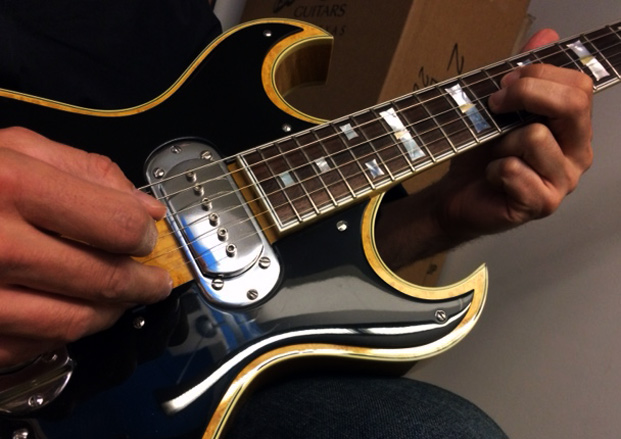The Scale That Will Change Your Life
This scale can profoundly expand the scope of your solos.
All the latest guitar news, interviews, lessons, reviews, deals and more, direct to your inbox!
You are now subscribed
Your newsletter sign-up was successful

A number of years ago, I was teaching at a guitar workshop in Pittsburgh.
I had taught at this annual workshop a number of times and always looked forward to my week there, not only because I was able to teach a class of students who really wanted to learn guitar, but also for more selfish reasons. I liked meeting and learning from some of the other instructors and clinicians.
So during this week, jazz guitarist Henry Johnson and I were jamming on each other's guitars, and I took the opportunity to ask him, "Hey, how can I, as a rock guitarist, get that 'outside' jazzy/Alan Holdsworth-y sound?"
His answer was so simple and astonishing. I will share it with you here.
He said, "Simply flatten the root of the minor pentatonic scale. Use this whenever you would use the normal minor pentatonic scale."
The concept was simple but profound. I spent a few days getting the new shape under my fingers, and before I knew it, I was slipping this into every solo I could!
The example below shows the new altered A-minor pentatonic scale. In this A-minor example, this "flattened root scale" sounds outside over Am or an A7 chord, but inside over the dominant V chord (E7).
All the latest guitar news, interviews, lessons, reviews, deals and more, direct to your inbox!

Guitarist Adrian Galysh is a solo artist and education coordinator for Guitar Center Studios. He's the author of the book Progressive Guitar Warmups and Exercises. For more information, visit him at AdrianGalysh.com.
For information about the TK Smith "Smith Special" guitar in this photo, visit tksmith.net.
